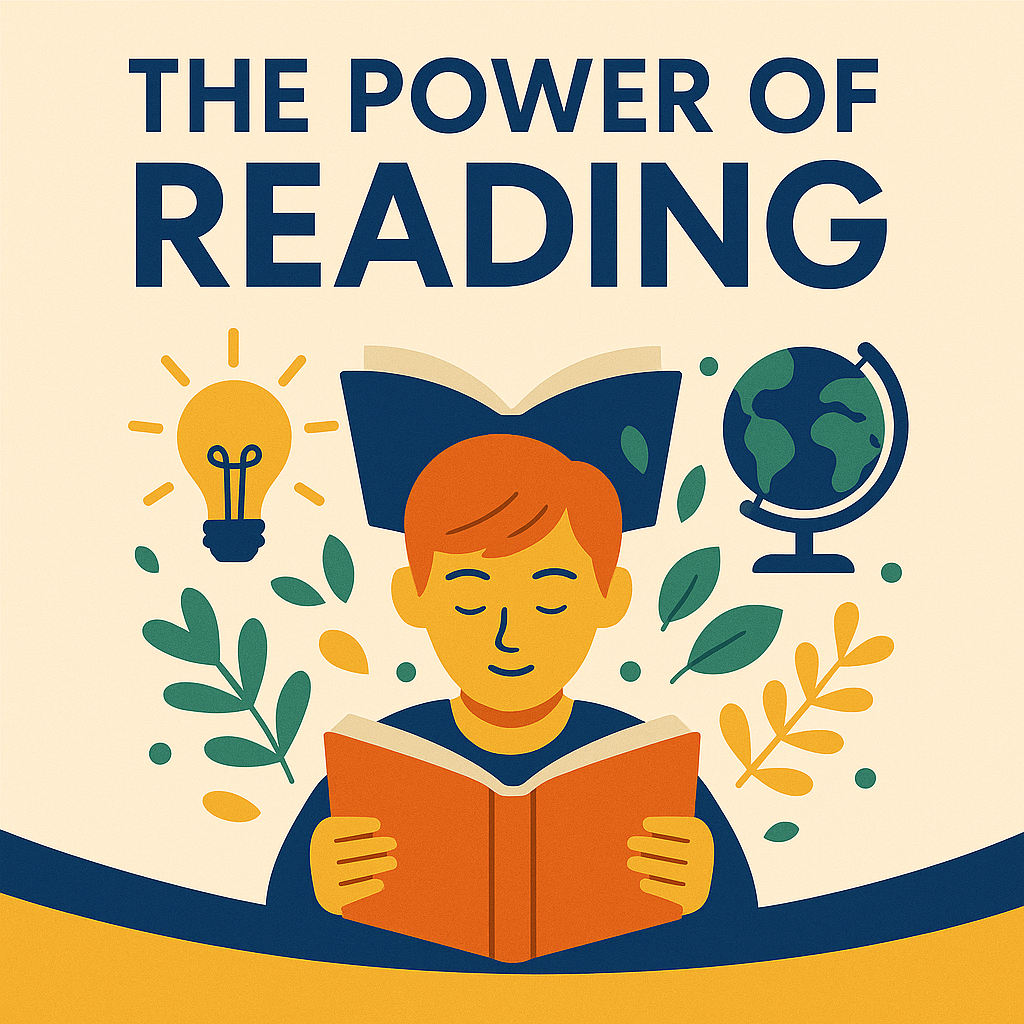Academic Spotlight: The Power of Reading to Build a Culture of Learning

21st November 2025
Reading is such an important habit to support learning. Reading is far more than a school expectation, it is one of the strongest predictors of long-term academic success, wellbeing and curiosity about the world. When students read widely and regularly, they strengthen the foundations for learning across every subject and every stage of school.
Why Reading Matters for Academic Progress
Research consistently shows that students who read for pleasure and for learning make significantly faster progress than those who do not. Regular reading:
- Builds vocabulary, helping students express themselves clearly in writing and speech.
- Improves comprehension skills, supporting success in subjects like English, Humanities, Science and even Maths.
- Strengthens memory, as students make connections between ideas and recall information more effectively.
- Boosts focus and stamina, enabling them to engage more deeply with longer and more complex tasks.
Reading is also a powerful tool for developing empathy, creativity and critical thinking—skills that sit at the heart of becoming confident, independent learners.
Reading at All Ages
The benefits of reading apply across every stage of a student’s educational journey:
- In Early Years and Primary, being read to daily builds language development, imagination and early literacy.
- In the Upper Primary and Lower Secondary years, regular reading helps students navigate increasingly complex vocabulary and ideas, giving them a strong advantage in subjects that rely on interpreting information.
- In GCSE and A-Level, strong reading habits support revision, understanding exam questions clearly and synthesising information—essentials for achieving top grades.
No student is ever “too old” to benefit from reading regularly.
Whole-School Culture: Reading as a Shared Experience
At BMIS, we are committed to strengthening our culture of reading across the school. This includes library development, reading programmes in both Primary and Secondary, shared reading events, and opportunities for students to talk about books, exchange recommendations and explore new genres.
When reading becomes part of a school’s daily rhythm, students learn to see themselves as readers—curious, reflective and eager to grow. This mindset leads to higher achievement, stronger confidence and a lifelong love of learning.
How Parents Can Support at Home
Parents play a vital role in this journey. Simple habits make a huge difference:
- Encourage daily reading time, even just 15 minutes.
- Talk about books and show interest in what your child is reading.
- Read together or share articles, stories or topics you enjoy.
Happy Reading!
Simon Welch












